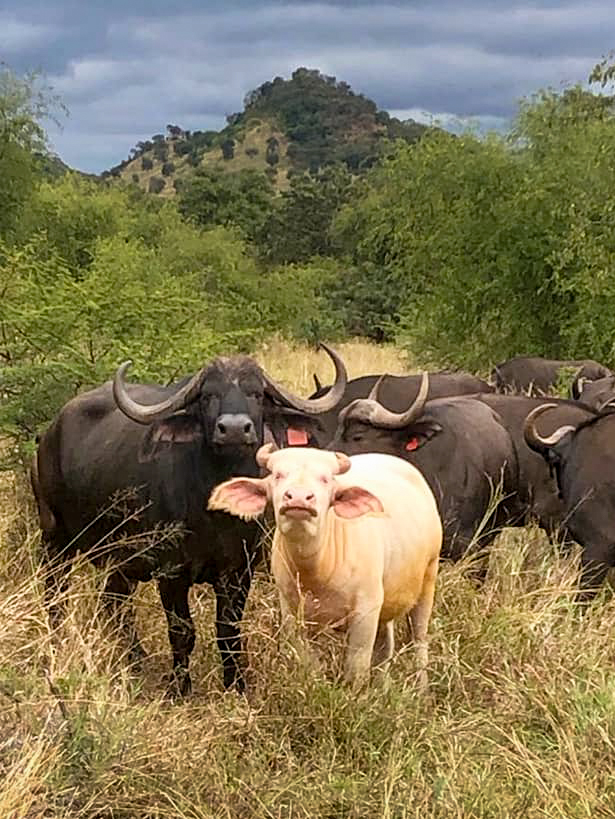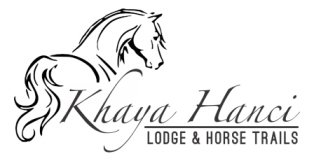*Experienced Riders Only
It is true that not everybody will be allowed to ride a member of the Khaya Hanci herd. We are very careful in picking prospective riders - for very good reasons. Read more about our philosophy!
You may have seen that our adverts have an asterisk whenever we speak of horseback riding. At Khaya Hanci we are very picky about who rides our horses, or not. Whenever there is any uncertainty, we prefer to err to the side of caution, and offer other options of exploration in this marvellous corner of Africa. Just as we have every reason to take care of our visitors, we also have to be extra careful about our horses. Here we hope to clarify some of those reasons, and simultaneously provide some more insight into these wonderful beings.
Care. Compassion. That is the starting point and guiding theme for all human-horse interactions at Khaya Hanci. Most of the horses at Khaya Hanci are rescues. Each has been rescued from some miserable situation and all are deserving of a little extra TLC. Some of the horses have alchemised their pain with greater relative ease, while other have taken a lot of nurture (that cost real time and money) to get back to state of health. Likewise, some have warmed up well to humans and seem to love riding, while others are best left alone to just be horses. Fair play. The bottom line at Khaya Hanci is that we didn’t rescue these horses from a life of suffering just to make them suffer here, and we must live up to our commitment to offer an improved existence.
Of course, the hard line animal ethicists are entirely against horse keeping or riding. However, an honest appraisal based on experience, shows that humans and horses have fused a symbiotic relationship over several millennia that has, for some horses, become natural and reassuring. Where we stand in the 21st century, we are far removed from the pristine and “ideal” natural conditions enjoyed by hunter-gatherers and wild horses. in contemporary terms, conscientious humans do best when they offer horses protection from a variety of threats, both natural and technological. This is the unspoken basis for the domestication “contract”, forged in antiquity, and which persists to this day. Looking at the stout Przewalski’s Horse (below), the only remaining undomesticated horse, it is clear that horses have become adapted to a more sheltered life. In short, we feel that in keeping horses, we are following the more compassionate way, and we have specifically acquired the larger Khaya Hanci Horse and Game Ranch to provide more freedom to range. We respect the right of the herd to roam.
 Przewalski's Horse is the world's last undomesticated horse, and a possible progenitor of contemporary horses (image from Wikimedia Commons)
Przewalski's Horse is the world's last undomesticated horse, and a possible progenitor of contemporary horses (image from Wikimedia Commons)
We also take a broader and more pragmatic view on riding. As herd animals, horses appreciate a good leader, and don’t mind the instructions of a congenial rider, if he/she lives up to the title. It is clear that herds have a strict leadership hierarchy, and without leadership, horses experience fear and stress. From our observation, horses enjoy a good ride with an attuned rider, and the stress indicators of an animal in fearful flight are absent, replaced by enthusiasm and exuberance. We see an animal at play, and this is the kind of horse-and-rider partnership we hope to see every time.
It should go without saying that any prospective rider should understand that he/she is dealing with a sensitive sentient being that is worthy of friendship, and not just a “vehicle”. Horse riding is not “just like riding a bike”, and we certainly need to know that you really know how to ride and how to read cues from the horse. “Don’t force the horse” will be your mantra on this ride.
Getting the pairing right is the key to the connection that constitutes a pleasant horse riding experience, for both horse and rider. The first considerations are the physical traits of rider and horse, such as weight, height and fitness. Horses should carry no more than 20% of their body weight (and some would say less). A large horse weighs roughly 500-600kg and the ideal rider should therefore not weigh more than 100kg. That said, lighter is not always better, as a heavier but more experienced rider that moves with the horse is better for the horse. A heavier horse is also not necessarily a stronger horse, and smaller breeds are sometimes better equipped for a heavier rider. But not if the rider is very tall. We assess all these factors carefully before venturing out on a ride. Remember that exceeding structural load or physical limits may break a vehicle, but it injures a horse, often painfully and irreparably, and this will not do.
Next we consider experience in the saddle. Just like a pilot, a good rider has clocked the hours, and continues to do so frequently to stay up to speed. We don’t set a minimum number of hours, but we will probe the level and nature of the prospective rider’s experience. There is a vast difference between a rider who spends weekends trotting over manicured terrain, and one that has clocked the same number of hours in annual wilderness expeditions that feature dangerous wild animals on the way. Considering that this is Africa, we would probably rate the latter more highly, as the experience is more applicable. Alternatively, if you are experienced in less demanding conditions, we may set out different routes or perform test rides to make sure that you really are up to scratch. We will know from your Flow - essentially whether you can ride instinctually or not. Riding in Nature requires the kind of Gladwellian non-thinking-knowing-what-to-do that is usually the stuff of pro athletes on the win. It should be clear that this excludes beginners or when-on-vacation riders. This is the bush, not the beach, and we have the buffaloes to prove it.
 Snowflake Photo-Bomb (Image: Ulrike Hake)
Snowflake Photo-Bomb (Image: Ulrike Hake)
The final, and arguably most important consideration, is that of character. Horses are higher mammals as are humans (at the best of times). Both creatures are unpredictable due to memories, emotions, personal preferences and will - delightfully packaged as personality. A good rider should minimally be in touch with that “irrational” part in him/herself to be able to control these while in the saddle. Expressions of uncontrolled rage, panic or excitement - even to the degree that it may be acceptable in a social setting - could well be too much for a horse. It may well be that your own horse, in love, has grown accustomed to your quirks, but that may not be the case for ours. It is also true that a perky, hyper-energetic horse may be too much for you if you are a more reserved rider and we will certainly avoid such a compact. That said, we really know our horses well, and so, if we ask for a bit of time to first get to know you as a person or rider, it is done in fairness to the horse. We should also make it abundantly clear that, in grading a rider, we look for skilful confidence without a need for tyranny or other forms of ego projection.
Considering all the above we must always reserve the right to refuse a rider, regardless of the metrics of experience. Sorry not sorry. Our love for our horses and concern for your safety and enjoyment have brought us to this conclusion. It should be noted here that the rescue operations that have brought these horses to us, have not simply been a matter of donning cape and spandex, and cueing a theme song. Maybe some of our stories will make it to this blog. They could certainly fill a book. It has taken a great summoning of courage and commitment to persevere through the adversity, legal battles and logistics to get these horses to safety. It has cost us, but it is worth it, because THEY are worth it. We trust that you will accept it if we say “no” or “not yet”, bearing this in mind.
The good news is that, regardless of whether you ride or not, there is every opportunity at Khaya Hanci to get to know and understand these amazingly intelligent and soulful creatures. Simply hanging out with horses has an amazing effect on our well-being, and any interaction with them is truly magical. We may not follow the hard line that horses are sacrosanct, but we do take very good care of our dear, dear old friends.

Share This Post